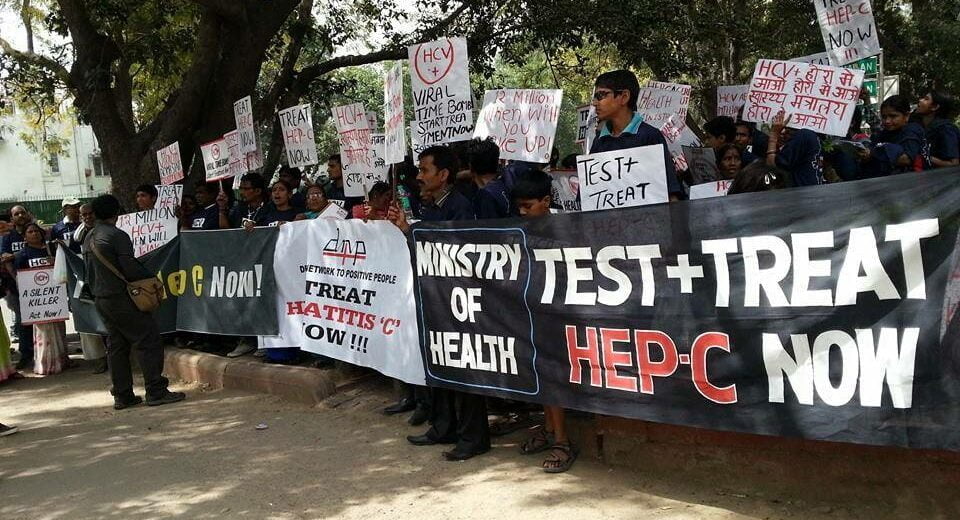The 2021 NGO Report focuses on the importance of strengthening societal enablers for the HIV response. The persistence of punitive laws, stigma and discrimination, gender inequalities and violence prevent HIV responses from leveraging proven strategies to reduce HIV vulnerability and increase equitable service access.
Executive Summary
The Global AIDS Strategy recognizes that HIV services, while critical to hopes for ending AIDS as a public health threat, will on their own not be sufficient to reach the 2030 target without concerted efforts to address the social and structural factors that increase HIV vulnerability and diminish the ability of marginalized populations to access essential services. The Strategy’s 10-10-10 targets, endorsed as well in the 2021 Political Declaration on HIV and AIDS: Ending Inequalities and Getting on Track to End AIDS by 2030, call for unprecedented action to eliminate punitive legal and policy frameworks, eliminate stigma and discrimination and ensure gender equality and lives free of violence.
The persistence of punitive laws, stigma and discrimination, gender inequalities and violence prevent HIV responses from leveraging proven strategies to reduce HIV vulnerability and increase equitable service access. For example, access to education, shown to contribute to HIV prevention and the empowerment of women and girls, is undermined by unequal gender norms, transphobia, homophobia, bullying and violence. Barriers to education prevent many young people from receiving comprehensive sexuality education, an essential pillar of combination HIV prevention.
Although table employment buttresses HIV responses by reducing HIV vulnerability and improving health outcomes for people living with HIV, many people living with or affected by HIV are denied employment due to stigma and discrimination, with discrimination, marginalization and inequalities block healthcare access for many people living with or affected by HIV or deter individuals from seeking the health services they need. The COVID-19 pandemic has in many instances worsened inequalities and deepened the impact of social and structural barriers.
Laws and policies often impede effective HIV responses. These include punitive laws that criminalize drug use, same-sex sexual relations and sex work, as well as those that authorize criminal penalties for HIV exposure, non-disclosure or transmission. In many countries, laws restrict the ability of young people under age 18 years to access comprehensive sexual and reproductive health services. Where counterproductive laws and policies have been removed, evidence clearly shows that HIV responses have been strengthened.
Communities play a central, yet badly under-resourced, role in efforts to achieve the 10-10-10 targets for societal enablers. Countries advocate for policy change, take action to reduce stigma and discrimination, monitor and respond to human rights violations, promote community solidarity and resilience and undertake programmes to prevent violence and change harmful gender norms. Community-led service delivery also helps ensure service access for the key and vulnerable populations that are most heavily affected by societal barriers. Although the Global AIDS Strategy envisages that at least 60% of programmes to support achievement of the 10-10-10 targets will be delivered by community-led organizations, community-led efforts are UNAIDS/PCB (49)/21.24.rev1 Page 6/34 undermined by inadequate and inconsistent funding and by all-too-common political, cultural and religious resistance in their home countries.
To end AIDS as a public health threat by 2030, urgent action is needed to fully leverage societal enablers, including intensified advocacy for the removal of harmful laws and policies and actions to ensure unimpeded access to education, employment and healthcare opportunities for people living with HIV, key populations and other vulnerable groups. Substantially stronger efforts are required to eliminate stigma and discrimination. The magnitude and consistency of funding for community-led efforts on societal enablers and service delivery must markedly increase, and data must be more rigorously and strategically used to guide scale-up of societal enablers. The Joint Programme is a pivotal actor in efforts to reach the 10-10-10 targets, underscoring the need for robust, predictable funding for UNAIDS and for the Joint Programme to fully leverage its core strengths and comparative advantages.
